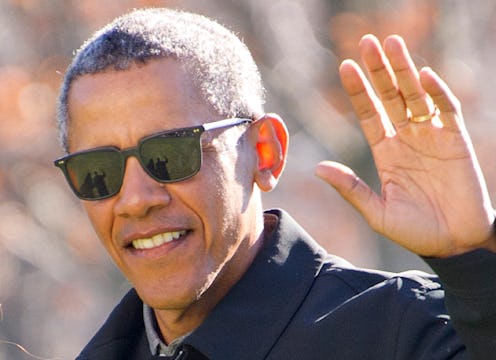News
The White House Responds To Steven Avery Petitions
The Netflix series Making a Murderer captivated America, convincing many that two Wisconsin men were either wrongfully convicted of murder, or at least weren't given their Constitutional right to a fair trial. More than 350,000 people signed a Change.org petition urging President Obama and Wisconsin Governor Scott Walker to pardon Steven Avery, who's currently serving a life sentence for the 2005 murder of 25-year-old Teresa Halbach, and another nearly 130,000 signed a similar We The People petition. However, those hoping to see Avery exonerated were let down Friday, as the White House's response to the Making a Murderer petitions explained why President Obama can't pardon either man.
The petition on Change.org, started by Michael Seyedian after watching the documentary series, reads: "After viewing it, I am outraged with the injustices which have been allowed to compound and left unchecked in the case of Steven Avery of Manitowoc County in Wisconsin, U.S.A. Avery's unconstitutional mistreatment at the hands of corrupt local law enforcement is completely unacceptable and is an abomination of due process."
The White House's We The People team responded to both petitions, explaining that President Obama only has the power to "grant reprieves and pardons for offenses against the United States," as dictated by the Constitution. This means he can only pardon federal crimes, and both Avery and his nephew Brendan Dassey were convicted of state crimes in relation to the Halbach murder.
Although the response essentially denies the petitions' requests, it notes that the president is working on the nation's criminal justice problems from different angles. The response said, "While this case is out of the Administration's purview, President Obama is committed to restoring the sense of fairness at the heart of our justice system." It points out that the Obama administration has issued 66 pardons and 184 commutations (when someone is released from prison while serving a sentence, as opposed to pardoned afterwards) since 2008, more than the last five presidents combined.
President Obama became the first sitting president to visit a federal prison in July, and has continuously advocated for criminal justice reform. "And he continues to work with Congress to pass meaningful criminal justice reform that makes the system more cost-effective, fairer, and smarter, while enhancing the ability of law enforcement to keep our communities safe," the We The People response reads. However, he's legally restricted from acting in this particular case. The petitions could still be accepted by Governor Walker, but he has never issued a pardon and hasn't been interested in doing so since taking office in 2011.
Dassey, who has been behind bars since he was 16, has one last shot for his case to be re-examined — Northwestern University's Center on Wrongful Convictions of Youth took Dassey's case to federal court in Wisconsin, asking for a writ of Habeas corpus, which would require the government to decide whether or not the teen was illegally imprisoned and convicted. It's unclear when Milwaukee Magistrate Judge William E. Duffin will make his decision, though an attorney for Dassey told NBC Chicago it could happen any day and should be within the next year.
"Thanks again for raising your voices," the response said. "We hope you'll continue to participate on the platform."
